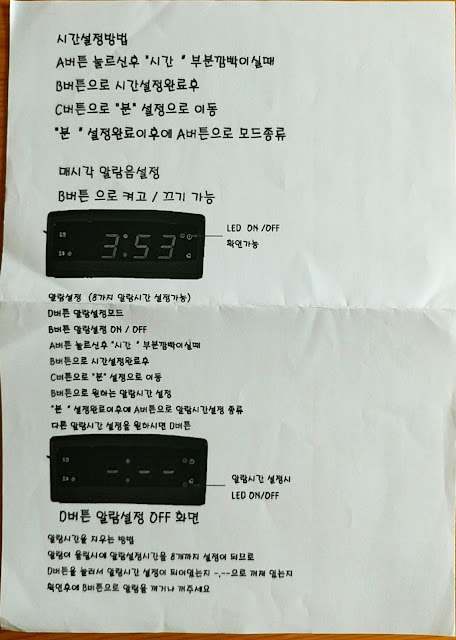Kotlin 문법 정리.
// 주석.
/* 주석 */
// private 현재 파일에서만.
// internal 같은 모듈에서만.
// protected 상속받은 클래스에서.
class Test {
// Double, float, Long, int, Short, Byte, String, Char
val hello : String = """ hi
hello """
// val 읽기 전용, var 쓰기 가능.
val a: Int = 1
var b: Int? = null
// lateinit 늦은 초기화.
lateinit private var mHandler: Handler
fun voidFunc() {}
fun sum(a: Int, b: Int) = a + b
fun sum(a: Int, b: Int = 10): Int { return a + b }
// int? 널타입 리턴 가능.
fun parseInt(str: String): Int? { return null }
fun NullCheck() {
var aa: Int? = 11
var bb: Int? = null
var cc: Int = aa!! // !! 널이 아님을 보증.
var str: String? = null
var ch : Char = str?.get(1) // ?. 널이 아닐때 호출
var ch2 : Char = str?.get(1) ?: 'a' // ?: 널일때 호출
}
fun StringTemplates() {
val s1 = "a is $a"
val s2 = "${s1.replace("is", "was")}, but now is $a"
val str = "hi"
println("$str Hello") // hi hello
println("${str}Hello") // hihello
}
fun maxOf(a: Int, b: Int) = if (a > b) a else b
fun maxOf(a: Int, b: Int): Int {
if (a > b) {
return a
} else {
return b
}
}
fun printProduct(arg1: String, arg2: String) {
val x = parseInt(arg1)
val y = parseInt(arg2)
// Using `x * y` yields error because they may hold nulls.
if (x != null && y != null) {
// x and y are automatically cast to non-nullable after null check
println(x * y)
}
else {
println("'$arg1' or '$arg2' is not a number")
}
}
fun Typechecks(obj: Any): Int? {
if (obj is String) {
// `obj` 는 자동으로 `String`으로 형변환 된다.
// 현변환은 이 블록 안에서만 유효.
return obj.length
}
// `obj`는 `Any` 타입 이다.
val b: String? = null
println(b?.length)
val listWithNulls: List<String?> = listOf("Kotlin", null)
for (item in listWithNulls) {
item?.let { println(it) } // prints Kotlin and ignores null
}
// val l = b?.length ?: -1
val l: Int = if (b != null) b.length else -1
val l2 = b!!.length
val aInt: Int? = a as? Int
val nullableList: List<Int?> = listOf(1, 2, null, 4)
val intList: List<Int> = nullableList.filterNotNull()
return null
}
fun Loop() {
val items = listOf("apple", "banana", "kiwifruit")
for (item in items) { println(item) }
for (item: Int in ints) { println(item) }
for (i in 1..3) { println(i) }
for (i in 6 downTo 0 step 2) { println(i) }
for (i in array.indices) { println(array[i]) }
for ((index, value) in array.withIndex()) {
println("the element at $index is $value")
}
var x = 9
while (x > 0) { x-- }
do {
//val y = retrieveData()
} while (y != null)
}
fun WhenExpression(obj: Any): String =
when (obj) {
1 -> "One"
"Hello" -> "Greeting"
is Long -> "Long"
!is String -> "Not a string"
else -> "Unknown"
}
fun Collections() {
val num:Array<int> = arrayOf(1, 2, 3)
for (item in items) { println(item) }
when {
"orange" in items -> println("juicy")
"apple" in items -> println("apple is fine too")
}
val fruits = listOf("banana", "avocado", "apple", "kiwifruit")
fruits
.filter { it.startsWith("a") }
.sortedBy { it }
.map { it.toUpperCase() }
.forEach { println(it) }
}
}
class Test2{}
val t = Test2()
class Test3(var value: String)
class Test4(var name: String) : Test3(value)
{
constructor(name: String):this(name) {} // 생성자.
init { } //
}
// abstract 추상클래스.
// interface
// 확장함수.
fun Int.Test() = this * 2
val aaa: Int = 3
aaa.Test()
// 형변환.
val aaa: Int = 3
val bbb = aaa.toString()
val ccc = Int.parseInt("33")
// let with apply run also 확장함수, 리턴형 차이.
var ttt = str?.let{ Int.parseInt(it) } // str을 {}안에서 it로 지칭. 결과리턴.
var ttt = str?.also{ Int.parseInt(it) } // str을 {}안에서 it로 지칭. str리턴.
var ttt = str?.apply{ this = "test" } // str의 상태를 변화시키고 str을 리턴.
var ttt = str?.run{ Int.parseInt(this) } // str을 {}안에서 it로 지칭. 결과리턴.
with(str) { Int.parseInt(this) } // str을 this로 지칭. str이 널이 아닐때만. 결과리턴.
.jpg)

댓글
댓글 쓰기